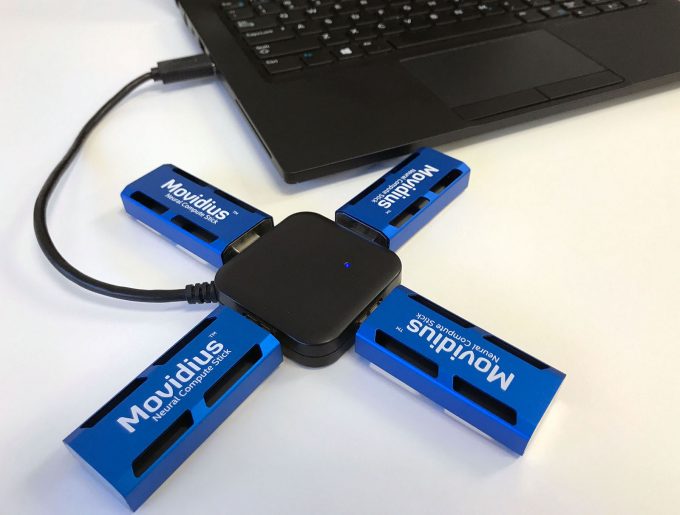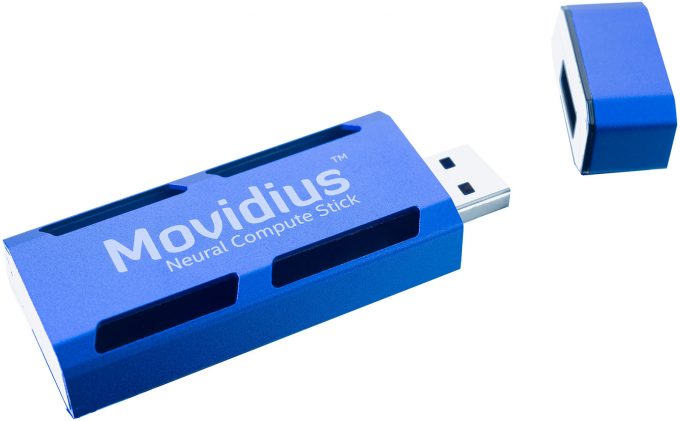- Qualcomm Launches Snapdragon 4 Gen 2 Mobile Platform
- AMD Launches Ryzen PRO 7000 Series Mobile & Desktop Platform
- Intel Launches Sleek Single-Slot Arc Pro A60 Workstation Graphics Card
- NVIDIA Announces Latest Ada Lovelace Additions: GeForce RTX 4060 Ti & RTX 4060
- Maxon Redshift With AMD Radeon GPU Rendering Support Now Available
Intel Releases Its First Movidius Deep Learning USB Stick, Prices It At $79
Last April, we wrote about Movidius, and its “deep learning accelerator” housed inside of a USB stick. We were intrigued by the company’s offering, but months later, we found that Intel was even more so, as it acquired the company for an undisclosed sum. Now, the first fruits of the acquisition have rose to the surface, in the form of the Intel Movidius Neural Compute Stick.
According to AnandTech, which seems to have more information on the device than the product’s own website, this year’s Movidius stick is slower than the original (150 GFLOPS vs. 100 GFLOPS), but has far more memory (4Gb vs. 1Gb). It doesn’t support TensorFlow like the original, instead offering exclusive support for the Caffe framework.
It’s a bit of an odd trade-off to lose performance on the current model, but the device does have other functionality to help make up for it, including multi-stick mode. The drive also now includes a Type-A USB 3.0 port, and costs $20 less, at $79.
Being a 100 GFLOPS (half-precision) device, this stick is an interesting product when compared to the likes of NVIDIA’s Quadro GP100, which pushes 20 TFLOPS. Even with NVIDIA’s solution costing ~$7,000 ($0.35/GFLOPS), it still offers good performance per dollar, with this Movidius stick rounding out to $0.79/GFLOPS.
That said, it’s hard to compare the two types of products because they are catering to very different audiences. Plus, Movidius’ stick does have two significant perks: it runs at a single watt, and it can be plugged in anywhere. Plus, as mentioned before, it can be paired with other Movidius devices to get the job done quicker.
As you’d expect from Intel, there are a number of guides and software tools being made available to help users get the most from their Movidius stick. That includes being able to convert a trained Caffe neural network into an embedded neural network, and tuning on a layer-by-layer basis.
If you’re interested in a Movidius stick, you can head here, but don’t be surprised if stock is hard to find right from the get go.






